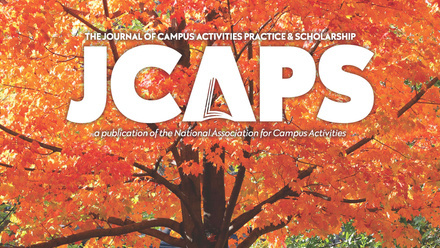The Importance of Volunteering
Often when we talk about volunteering (especially with students), we emphasize the importance of their service to the community. And, I suppose you might expect me to talk about all the selfless reasons why you should consider volunteering. As a fan of the TV show, Friends, this conversation reminds me of the episode where Phoebe and Joey are debating how it’s impossible to do a good deed that’s truly selfless. I agree with Joey that there is no completely selfless good deed. That includes when you choose to volunteer for NACA.
My first volunteer experience was with a regional leadership team shortly after I relocated and started a new job. The main reason I signed up was to meet other professionals in the region. Then, the regions changed and I volunteered again for much the same reason. It allowed me to attend a summer meeting and meet others. Then, as I became more experienced in attending regional events, I was looking for ways to do things during the conference that allowed me to learn new things beyond ed sessions. I ended up volunteering for a number of different roles within my region for several years.
Here are some of the things that I got out of volunteering for NACA.
- Understanding true collaboration. Whether it was figuring out how to do ed sessions with staff from other schools or how to run a conference together, my different roles allowed me to learn and practice the art of collaboration. Often we confuse delegating and collaborating. NACA has helped me learn the difference.
- Talking to others. If you know me, this one may seem strange. I am willing to talk to lots of people. But, something you may not know is that I find small talk to be difficult. eing a part of a NACA volunteer team has given me a reason to talk with others. It gives me the starting point I need to feel like I’m able to have conversations that help me to get to know others.
- Event planning logistics. Prior to my volunteer experiences, I knew how to plan an event. But, involvement in NACA has helped me understand it on a higher level. It has helped me think about our college calendar overall and not just about the events our program board wants to plan. It’s helped me think about how events might be open to other campuses and how to plan in a way that works for my own campus while also being something that could work in another campus’ calendar. It’s also helped me help other schools think about how their calendars can work in a way that helps booking acts.
- The business side of event planning. My entire career has been in higher education. But, my work with NACA and associate members has helped me understand the business side of things. It’s helped me understand how to estimate costs and plan a budget. I’m also much better at estimating travel costs.
- Strategic planning. Now that I’m on the board, I have a much different experience around the process of strategic planning. In my job, I take the college’s strategic plan and create action items that support the plan. As a volunteer on the board, I’m part of the group that is creating the strategic plan that others need to create action items around. Working to think three to five (or longer) years in the future is a different frame of mind than my day-to-day work.
I know if you asked other volunteers, you’d get a different list. But, I know that every single volunteer is getting something out of their NACA involvement. Whether it’s about soft skills, tasks, or visioning (or even something else), every single person is learning something and applying new skills through their NACA experience.
In that Friends episode, Phoebe thinks she’s outsmarted Joey and lets a bee sting her. But, he points out that it made her feel good, so it’s still not a completely selfless act. As you think about the next step in your career or just a way to try things that are a little different from your day-to-day job, you should consider volunteering. Even if it’s just to make you feel good about your contribution, it’s valuable.






